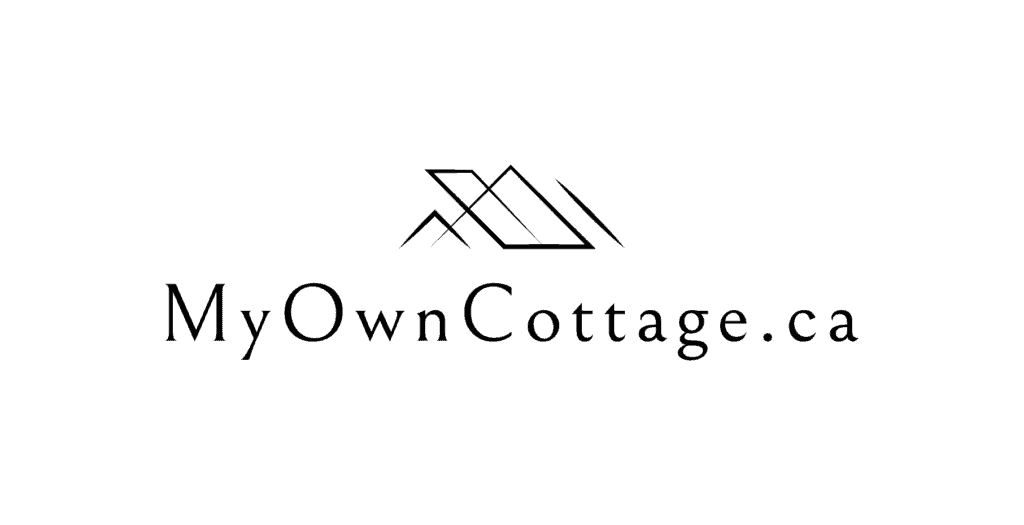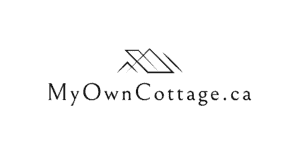Can I Use a Prefab Cottage as a Short-Term Rental in Ontario?
Can I Use a Prefab Cottage as a Short-Term Rental in Ontario?
Learn the rules, zoning, and income potential compared to permanent prefab homes for short-term rentals.
Can I Use a Prefab Cottage as a Short-Term Rental in Ontario?
Yes, you can use a prefab cottages in Ontario as a short-term rental unit.
To do so, it must comply with local municipal bylaws and meets year-round occupancy standards such as CSA A277 certification, permanent foundation, and full insulation.
Seasonal prefab cottages typically do not qualify under short-term rental licensing rules in regions like Muskoka and the Kawarthas.
Depending on location, it’s not always straightforward.
While listing a prefab cottage on platforms like Airbnb or Vrbo is possible in Ontario, zoning bylaws, licensing requirements, and building codes will dictate whether your property ultimately qualifies.
Understanding Short-Term Rental (STR) Bylaws
Many municipalities in popular cottage areas like Muskoka, Haliburton, and the Kawarthas have passed specific short-term rental (STR) bylaws that require cottages to meet year-round occupancy standards.
That means seasonal prefab cottages may be disqualified unless they’re upgraded for winterization and code compliance.
According to Alison Grant, a registered land use planner in Simcoe County, “Buyers looking to Airbnb a cottage often don’t realize that a seasonal structure won’t meet licensing rules. Start with your municipality’s STR policy before you build.”
➡ Learn more here: Prefab Cottage vs. Prefab Permanent Home Considerations: Expert Guide.
Zoning & Municipal Bylaws
Local zoning regulations are the first gatekeeper for rental eligibility.
Municipalities may:
Prohibit STRs in certain residential zones
Require a business or STR license
Limit rental days per year
Impose parking, septic, or noise requirements
What the Rules Say in Cottage Country
For example, Lake of Bays requires short-term rental licenses and inspections, while Gravenhurst enforces strict occupancy limits based on floor plan size and sleeping areas.
Tip: Look for permitted land use under “Temporary Use By-Laws” or “Tourism Accommodation” in your local zoning documents.
📌 Use case: My Own Cottage helped a family in Bracebridge upgrade their 3-season prefab into a CSA A277 modular home with high-performance windows and full insulation—qualifying them for a STR license and boosting their appraisal by 18%.
Seasonal vs. Permanent Prefab Dwellings
Seasonal prefab cottages are often cheaper, smaller, and easier to place—but they rarely include:
CSA A277 certification
Full thermal insulation
Winterized plumbing systems
Permanent foundations
By contrast, a prefab permanent home offers:
Better energy efficiency
Compliant square footage for STR bylaws
Higher appraisal and mortgage options
Lower insurance risk
Long-term rental income during the off-season
🏡 Prefab Permanent ≠ Traditional Construction
Built in a controlled environment with precision building techniques, prefab permanent cottages offer the perfect solution for year-round use without the headaches of traditional homes.
➡ Further reading: Do Prefab Cottages Qualify for Ontario’s Building Code?
Maximizing Rental ROI in Muskoka & Kawarthas
We spoke with Ontario cottage builders and STR consultants to find out what works best:
💡 What Actually Boosts ROI:
Winter-proofing for off-season rentals
Natural light in common areas (living room, dining room)
Dedicated home office or guest house functionality
Efficient floor plans under 1,200 sq/ft
Covered outdoor space for 3-season usability
🛑 What Often Limits Profitability:
Tiny homes (<400 sq/ft) that don’t meet municipal rental thresholds
Non-permanent foundations
Lack of CSA approval (lenders often reject)
“The best part is seeing clients go from uncertain to fully booked,” says James Lucier, Prefab Consultant. “With the right floor plan, even a small custom cabin can outperform a traditional rental.”
Should You Build for Seasonal or Year-Round Bookings?
Seasonal Cottage Rental Pros:
Lower upfront cost
Good for summer-only vacationers
Less heating or energy overhead
Seasonal Cottage Rental Cons:
Limited booking window (May–Sept)
May not meet STR licensing requirements
Higher risk of construction delays or compliance upgrades
Year-Round Rental Pros:
Maximize revenue with winter and holiday stays
Better insurance and financing options
More flexible resale and appraisal value
📝 Verdict:
If your goal is passive income or ROI, choose a custom home that meets code year-round.
Many prefab home models can be tailored to your personal style, square footage needs, and municipality rules.
Our Short-Term Rental Prep Checklist for Prefab Buyers
Ready to turn your prefab cottage into a profitable STR?
Before you break ground, you’ll want to assess:
✅ Local zoning and STR bylaws
✅ Building codes and CSA certification
✅ Insurance and financing limits
✅ Energy efficiency specs
✅ Guest usability: floor plan, privacy, entry door security, outdoor space
Our prefab cottages in Ontario are built to suit your unique needs, local regulations and site.
📥 Book a Free Builder Consultation with My Own Cottage to get personalized advice for your dream home or investment property.
Trust My Own Cottage with Your Short-Term Rental Build
At My Own Cottage, our team includes certified building professionals, STR compliance consultants, and prefab design experts with over 30 years of hands-on experience in Ontario’s cottage country.
We’ve helped hundreds of clients navigate local bylaws, achieve CSA A277 certification, and maximize rental income with smart, code-compliant designs.
From the first site evaluation to final product delivery, we provide exceptional service, full transparency, and expert guidance—no guesswork, no generic solutions.
📝 Take the First Step with Confidence!
Get started today with a free consultation or call us directly!
🧑💼 Request a Free Consultation
📲 Call Us Directly: (705) 345-9337
✅ Ontario-Built | ⚡ Energy-Efficient | 🏡 Fully Customizable | 🚚 Fast Delivery
Alternatively, for your convenience, you can also simply fill out the contact form below and we’ll get back to you soon! 👇
❓ FAQ: Can I Use a Prefab Cottage as a Short-Term Rental in Ontario?
Can I use a prefab cottage as a short-term rental in Ontario?
Yes, but only if it meets local municipal zoning bylaws and short-term rental licensing requirements, which often mandate year-round occupancy standards like CSA A277 certification and permanent foundations.
Can you Airbnb a cottage in Ontario?
Yes, you can list a cottage on Airbnb in Ontario, but only if the property complies with local short-term rental laws, including licensing, safety inspections, and applicable zoning restrictions.
Are prefab homes legal in Ontario?
Yes, prefab homes are legal in Ontario and must comply with the Ontario Building Code, zoning bylaws, and in most cases, be certified under CSA A277 for modular construction.
What is considered a short-term rental in Ontario?
In Ontario, a short-term rental is defined as a property rented for less than 28 consecutive days and may require municipal licensing, taxes, and adherence to specific health and safety standards.
How much does it cost to build a prefab cottage in Ontario?
Prefab cottages in Ontario typically cost between $275 to $375 per square foot, with additional costs for site prep, delivery, and permits adding $40,000 to $100,000+.
Can I put a modular home on my property in Ontario?
Yes, modular homes are permitted on residential lots in Ontario if the zoning allows it, and the structure complies with the Building Code and servicing requirements.
Is cottage country cracking down on short-term rentals?
Yes, many Ontario cottage regions like Muskoka and Haliburton have introduced stricter short-term rental bylaws, including licensing caps, occupancy limits, and higher enforcement penalties.
What are the short-term rental laws in Ontario?
Short-term rental laws in Ontario vary by municipality but often include licensing, minimum safety standards, MAT tax collection, and limits on the number of rental nights per year.
Are prefab homes allowed in Ontario?
Yes, prefab homes are allowed in Ontario and treated like site-built homes if they meet CSA A277 standards and municipal zoning and code requirements.
What are the rules for Muskoka short-term rentals?
In Muskoka, short-term rentals require an annual license, property inspections, and compliance with local bylaws regarding guest limits, parking, septic systems, and noise.
What is modular housing in Ontario?
Modular housing in Ontario refers to factory-built homes constructed under CSA A277 standards and installed on permanent foundations, fully compliant with the Ontario Building Code.

